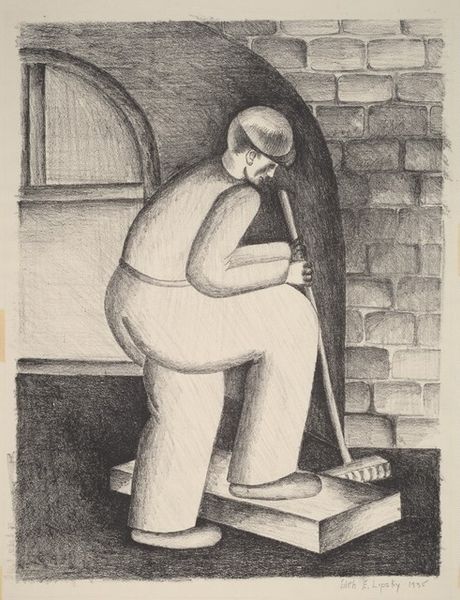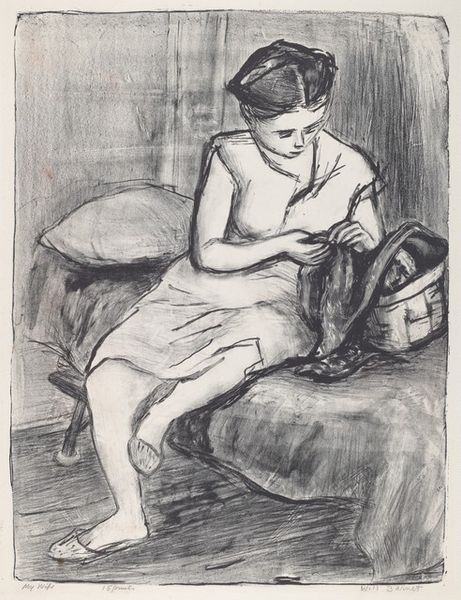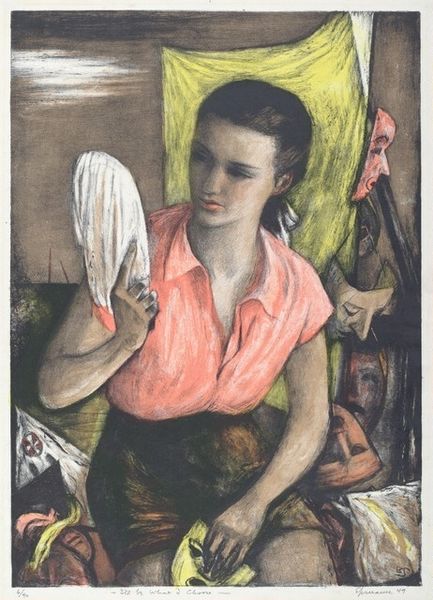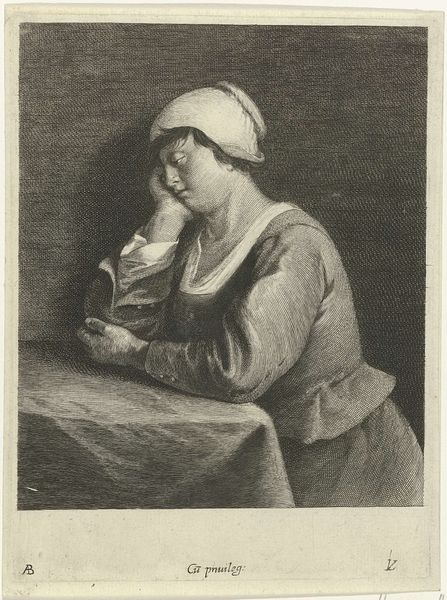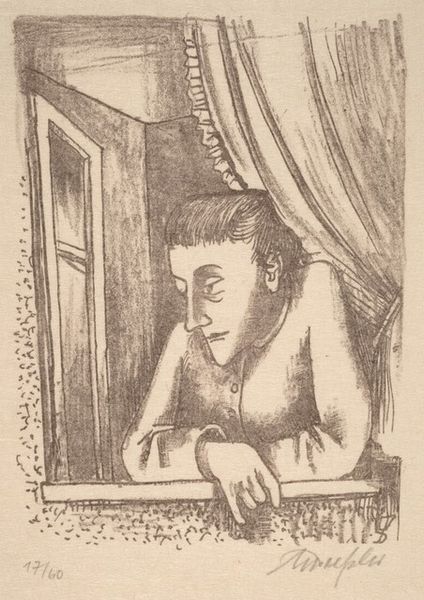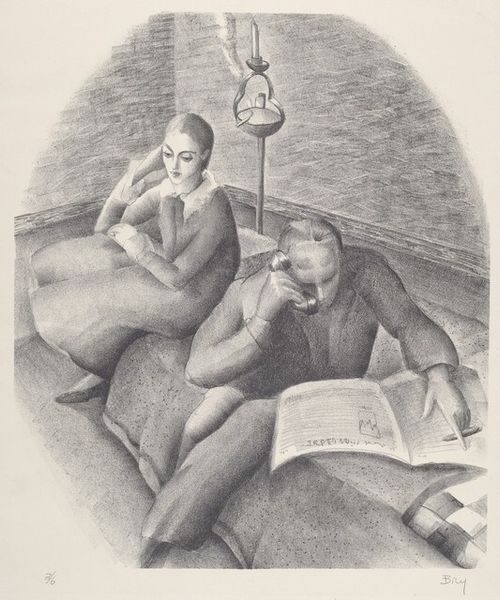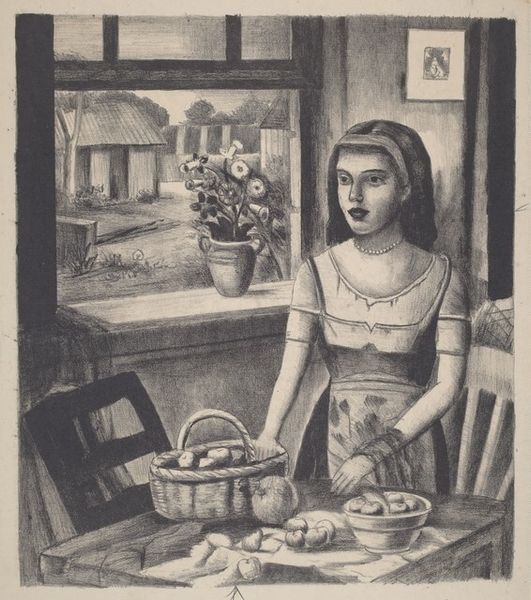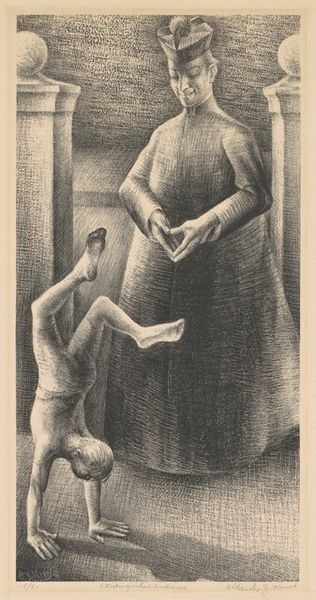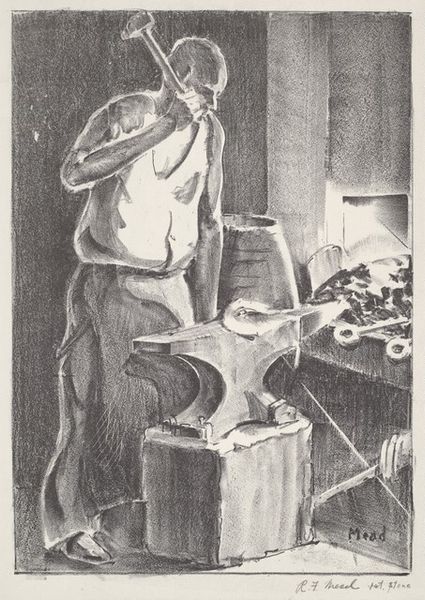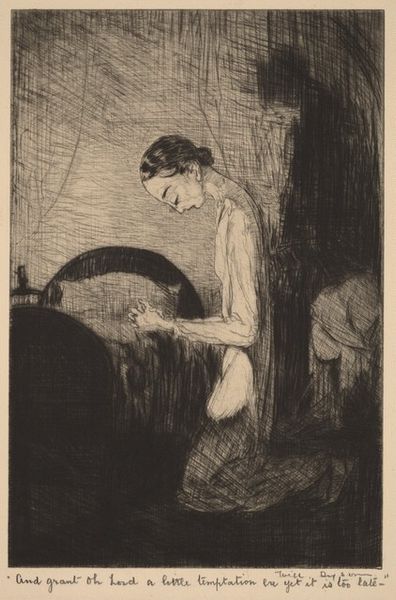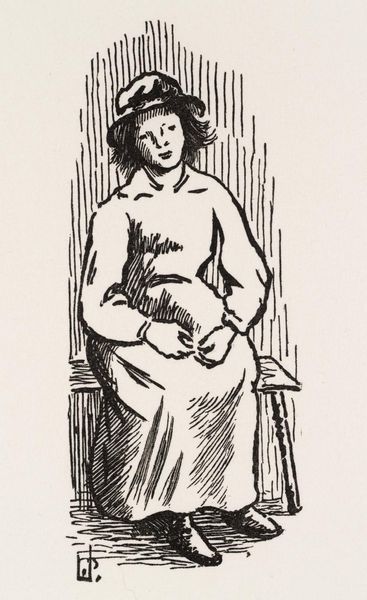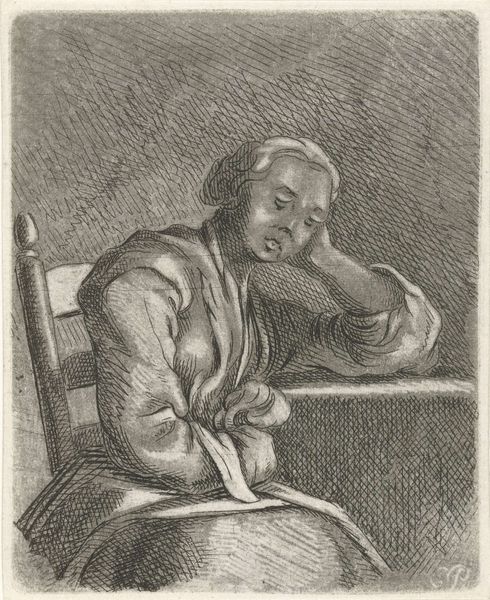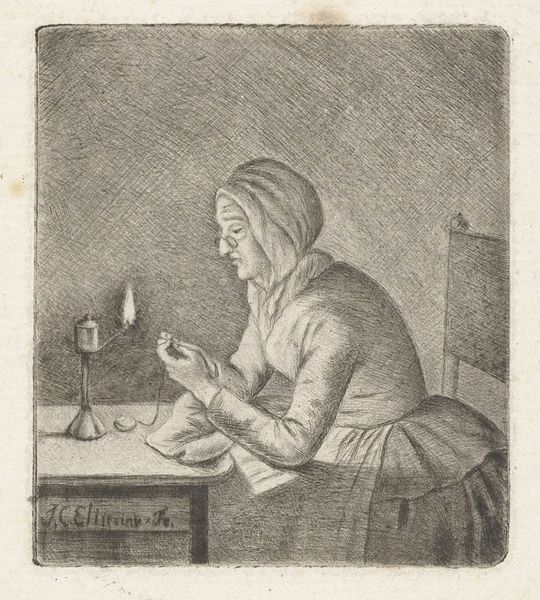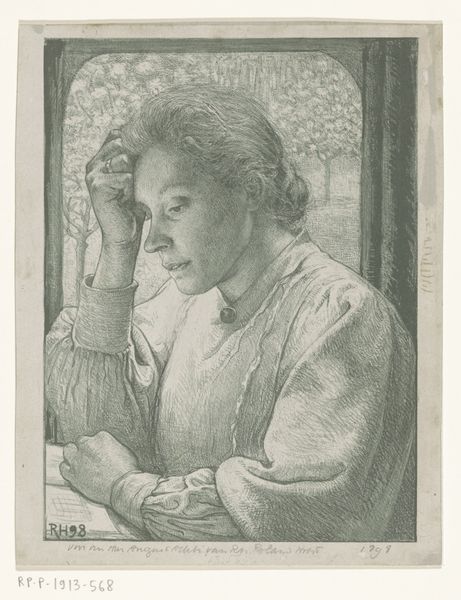
drawing, print, pencil
#
portrait
#
drawing
# print
#
charcoal drawing
#
pencil drawing
#
pencil
#
portrait drawing
#
genre-painting
#
realism
Dimensions: image: 324 x 240 mm sheet: 403 x 295 mm
Copyright: National Gallery of Art: CC0 1.0
Editor: Here we have Arthur Durston’s "The Laundress," created in 1938, primarily using pencil. It’s quite a striking image; I am particularly drawn to the stark contrast between the shadowed background and the figure. What is your perspective on it? Curator: It's fascinating to consider this work through the lens of its materiality. The deliberate use of readily available, quotidian materials like pencil and paper—reproduced as a print—speaks volumes about access and the representation of labor. Consider the historical context: it’s 1938, the tail end of the Great Depression. What does the image of a working woman performing domestic labor, rendered in such humble materials, tell us about class, gender, and the value placed on such work? Editor: So, the materials themselves are communicating something about the subject? Curator: Precisely. The choice wasn't accidental. Fine art materials were, and arguably still are, coded as high class. Durston instead highlights the material reality of this woman’s existence. It makes me consider how the act of reproducing this image as a print further democratizes its accessibility, mirroring the woman’s own labor, which is about care, service, and… dissemination. Editor: That’s an angle I hadn’t considered. How the reproduction of the image itself, mirrors the character's activity. It almost feels like an early form of mass media depicting the everyday. Curator: Exactly! What might be read simply as “realism” also acknowledges labor. How does the image itself become labor? Who consumes this image, and how? Editor: Seeing the print through that lens changes my interpretation entirely. I’m thinking about distribution now, access, the role of images, it all interrelates with her activity. Thank you for sharing such a thought-provoking reading. Curator: And thank you for opening this interesting discussion.
Comments
No comments
Be the first to comment and join the conversation on the ultimate creative platform.
